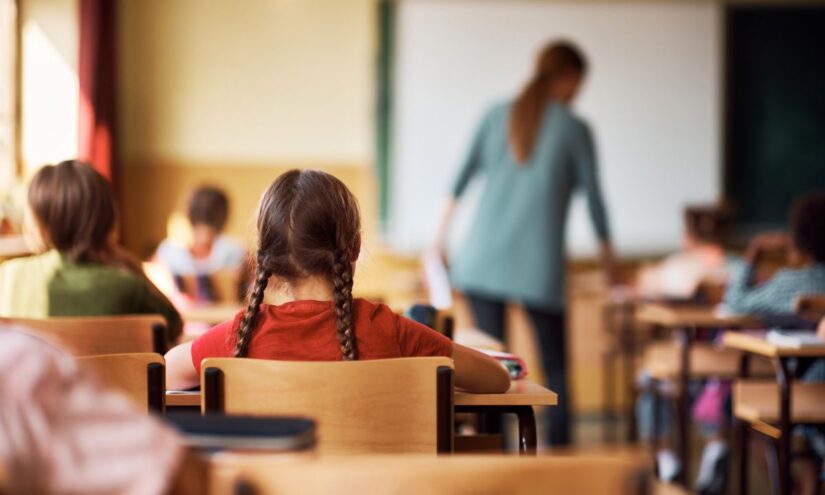Get stories like this delivered straight to your inbox: Sign up for The 74 newsletter.
When the pandemic began, the condition of 10-year-old Lewis, who has autism, began to deteriorate rapidly.
Lewis’ mother, who asked that the family not be identified to protect her son, said his son had stopped socializing since his fourth-grade classes in the Los Angeles Unified School District in Southeast Los Angeles were closed.
He began to have behavioral problems and fell far behind academically — all because he didn’t receive mandated behavioral, speech and occupational therapy services or one-on-one help via Zoom.
Lewis is now back in school, but his mother said it will take him two years of prayer to catch up.
“He needs to get these services back as soon as possible,” Lewis’ mother said. “He has no other choice.”
Hopefully, Lewis will be able to get the services he needs soon.
LAUSD agreed to provide those services to Lewis and the district’s more than 66,000 students with disabilities in a resolution with the federal Office for Civil Rights in May after an investigation found students had not been provided federally mandated services during the pandemic.
The nine-page outline agreement calls for the district to develop a plan to provide compensatory services for students, training for staff and ongoing communication with parents about the plan’s progress.
Concerned about how the district’s special education department will deliver services, disability rights lawyers, advocates and parents offered ideas for what LAUSD should offer students, including mental health services, more special education teachers, more staff training, improved transportation to services and an increased special education budget.
“I’m worried [the resolution] “It’s a way for school districts to appear compliant without addressing the underlying problem,” said Jill Rowland, education program director for the Children’s Rights Alliance, which advocates for foster youth in California schools.
“We need transportation assistance to get children to service providers at out-of-school centers,” she said. “We also need translation services to help students and families who don’t speak fluent English. We already have a shortage of staff, especially for students with disabilities.”
The agreement also requires the Los Angeles Unified School District to provide “compensatory services” to students with disabilities, acknowledging claims that the district denied some students a free and appropriate public education during the pandemic.
Los Angeles special education attorney Chris Eisenberg said the resolution is another tool that lawyers, advocates and parents can use to hold the Los Angeles Unified School District accountable for providing services for students.
“We’re hopeful that this accreditation from LAUSD will guide them in a better direction,” Eisenberg said. “Now that they’re under scrutiny all around, they have to be accountable to their students.”
LAUSD’s severe teacher shortage is especially acute among special education teachers. The number of students with disabilities in California has increased since 2015, and the special education teacher shortage has worsened each year. As of 2021, students with disabilities make up 13% of the district’s student population.
Special education services are also one of the largest costs for school districts: in 2016, the cost of educating a student with a disability was more than $8,000 more per student than the cost of educating a general education student.
“I’ve always been concerned that school districts are spending a lot of money on special education,” said Valerie Vanaman, a special education attorney who has criticized the district’s treatment of special education students during the pandemic.
Advocates and parents say they would like to see more funding allocated to special education services from the influx of money school districts have received for pandemic relief.
Lewis’ mother said she is disappointed with the quality of services provided to her son and would like to see aides, therapists, teachers and tutors who understand her son’s specific issues.
“My son deserves better services and a better life than what they’re giving him,” his mother said. “I’ve lost all faith in them.”
Lisa Barros Mosco, who was president of Speak Up, a Los Angeles special education advocacy group, when the group released survey results showing many parents said their children were not getting services during the pandemic, said the services problem has been going on for years.
“The pandemic has really revealed the inequities and lack of services for children with disabilities in our district.”
Advocates and parents said they are also concerned about which Los Angeles Unified School District official will oversee the district’s work on the solution, which they fear will be the same leaders who have denied services to their children during the pandemic.
“How can we trust people who ignored the needs of children in the first place? I think we need entirely new leadership to rebuild that trust.”
A Los Angeles Unified School District spokesman said in a statement that the district agreed to “key elements” including staff training and ongoing outreach to special education parents and advocates.
“The Los Angeles Unified School District remains committed to helping all students, including students with disabilities, recover from the pandemic and achieve their educational goals,” the spokesperson said.
Get stories like this delivered straight to your inbox: Sign up for The 74 newsletter.

